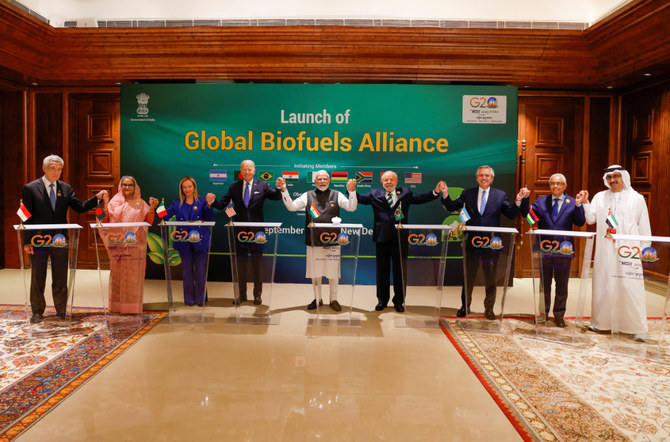G20 summit, currently being held in New Delhi, carries the potential to redefine global gatherings as events that genuinely serve the interests of the common people. Always multilateral engagements are complicated but India’s determination to make the G20 a success has finally yielded results.
There were several key take away of the G20 Summit on both geopolitical front and economic matters but the inclusive approach of India to this event documentation has surprised everybody at the end of the day. India has been pursuing a dual approach: streamlining G20 documents for greater accessibility and exploring ways to positively affect the daily lives of millions.
Hosting this global event marks a significant achievement for India, as it aspires to bring about transformative change in the lives of the world’s impoverished and marginalized populations.
While G20 and similar groups have traditionally focused on geopolitical and economic matters, India is steadfast in its commitment to ensuring that the G20’s mission extends to improving the quality of life for ordinary people on a global scale.
India’s leadership aims to facilitate affordable financing options for developing nations, as part of its commitment to the Global South. To achieve these goals, India is actively seeking solutions to bridge technology disparities, enhance energy security, and promote diversification of supply chains.
The recent focus on collaborative efforts such as the ‘fuels for the future’ and the ‘High-level Principles on Hydrogen’ signifies a positive step in the right direction.
In the past two decades, numerous worldwide initiatives have been put into action to combat environmental deterioration and address climate change. These efforts have encompassed policy adjustments, economic incentives, and regulatory changes on a large scale.
However, the equally significant actions needed from individuals, communities and institutions have not received the same level of emphasis and recognition, despite their substantial potential impact.
Consequently, the global spotlight is firmly fixed on India’s leadership within the G20, as it is promoting the theme of ‘One Earth, One Family’ to confront the real-world challenges experienced by nations worldwide.
Global Biofuels Alliance
During its G20 presidency, India has introduced the Global Biofuel Alliance (GBA) aimed at uniting nations to promote the growth of sustainable biofuel markets and foster the development of new opportunities within this sector.
As global sustainable biofuel production needs to be tripled by 2030, this initiative aims to empower developing nations in advancing their energy transitions while also embracing the principles of a circular economy.
The Alliance will actively cooperate with and enhance the efforts of pertinent regional and global organizations and initiatives operating within the bioenergy, bioeconomy, and broader energy transition domains.
These include but are not limited to the Clean Energy Ministerial Biofuture Platform, the Mission Innovation Bioenergy initiatives, and the Global Bioenergy Partnership (GBEP).
Biofuels, derived from biomass, stand as a renewable energy source, and India, a country that relies on imports for over 85% of its crude oil, is steadily bolstering its capacity to generate fuel from diverse sources such as crop residues, plant by products and municipal solid waste.
India is well on track to doubling its ethanol blending with petrol to 20% by 2025, including the establishment of numerous compressed biogas plants.
The formation of the Global Biofuels Alliance is geared towards promoting cooperation and enhancing the utilization of sustainable biofuels, particularly within the transportation sector.
Brazil, India and the United States, being prominent players in both the production and consumption of biofuels, initially collaborated to establish a Global Biofuels Alliance, welcoming participation from other nations.
The GBA has been launched officially by Indian PM Narendra Modi with multi-staker support spanning 19 countries and 12 international organisation.
Argentina, Bangladesh, UAE, Mauritius, South Africa and Italy have officially joined the Global Biofuel Alliance as initiating members while Canada and Singapore have joined the alliance as an Observer.
Its key priorities will include bolstering biofuels markets, simplifying global biofuels trade, sharing practical policy insights and offering technical assistance to national biofuels initiatives worldwide.
Furthermore, this initiative also contributes to India’s shift towards alternative fuels, aiding in reducing its import expenditure, a significant step towards achieving its ambitious target of net zero carbon emissions by 2070.
Green Credit Initiative
In pursuit of fostering a widespread commitment to environmentally positive actions and achieving the ‘Mission LiFE’ vision, which aligns with India’s net-zero goal by 2070, the Indian government is introducing the concept of Green Credits.
The Green Credits Program has been devised to encourage and reward voluntary environmental initiatives carried out by individuals, private businesses, small-scale industries, cooperatives, forestry enterprises, and farmer-producer organizations for their proactive environmental efforts.
The Green Credit Initiative program aims to establish a competitive market-driven system for Green Credits, offering incentives for voluntary environmental efforts by diverse stakeholders.
The Green Credit Program will prompt private sector industries, companies, and other entities to fulfill their pre-existing obligations under various legal frameworks. This will be achieved by aligning their actions with activities that can contribute to the generation or purchase of Green Credits.
The Green Credit Program introduces the idea of green credits, which serve as units of rewards allocated for specific environmentally beneficial activities. Unlike the domestic carbon market, which primarily concentrates on reducing CO2 emissions, the green credit system offers incentives for sustainable actions across a range of activities.
A notable feature of the program is the tradability of green credits. Participants who earn credits will have the option to sell them on a proposed domestic market platform. This market-based approach provides flexibility and allows for the efficient exchange of credits.
Digital Public Infrastructure
During the G20 summit, India also pitched for formation of a multinational and inclusive organization spearheaded by India. This institution, known as the One Future Alliance (OFA), is committed to extending the Indian model of digital public infrastructure (DPI) on a global scale.
The One Future Alliance (OFA) aims to bolster capacity through the provision of funding, offering technical support, and fostering global collaboration within the realm of Digital Public Infrastructure (DPI).
During the June meeting of the G20’s Digital Economy Working Group, there were preliminary discussions about OFA (Organization for the Future of the Digital Economy) and the One Future Fund. These discussions primarily revolved around the objective of supporting developing nations in adopting Digital Public Infrastructure (DPI).
OFA’s core mission encompasses enhancing capabilities, offering financial resources, providing technical guidance, and fostering international collaboration within the DPI domain.
To complement the efforts of OFA, a novel initiative has been proposed—the creation of a Global DPI Repository. This repository will operate virtually and voluntarily, serving as a hub for DPI initiatives undertaken by G20 member countries.
India’s Digital Public Infrastructure (DPI), the India Stack, has gained attention and interest from around the world due to its innovative approach to addressing challenges such as identity verification, financial inclusion, and provision of digital services.
After the International Solar Alliance and the Coalition of Disaster Resilient Infrastructure, if all of a set of G20 members approve, OFA will be the third major international institution to be pioneered by India under the Narendra Modi government.
India’s digital transformation in recent years has been transformative, ushering in an entirely new paradigm of economic growth. The infusion of technology has led to the establishment of a digital public infrastructure, facilitating the delivery of essential services to Indian citizens.
This encompasses a wide spectrum, including identity verification, financial inclusion, tailored assistance for the most disadvantaged, digital education, healthcare services, and various government initiatives, to name just a few.
In the face of ongoing global challenges, spanning from the pandemic to geopolitical uncertainties, the world economy has undergone rigorous testing. As the host nation of the G20 summit, India bears the responsibility of restoring trust and optimism in international trade and investment. India’s role extends to the establishment of robust and all-encompassing global value chains capable of withstanding future disruptions.
India boasts a spectrum of offerings, ranging from ancient traditions to state-of-the-art technologies, catering to a wide array of interests and preferences. Given this extensive diversity, India stands as a perfect testing ground for innovative solutions. Any solution that proves successful in India can be readily adapted and implemented anywhere across the globe.
And no talk about the future, sustainability or growth and development can be complete without energy. It impacts development at all levels, from individuals to nations.




